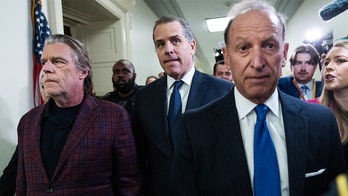House Majority Leader Steny Hoyer (D-MD) said Tuesday that he intends to try to find common ground with House Republicans on the controversial health care reform bill now moving through Congress.
“I’ll be reaching out to a number of Republicans,” Hoyer said. The Democratic Leader cited two recent instances where he said there appeared to be agreement on “80 percent” of the issues involved in reforming health care.
In an interview two weeks ago on MSNBC, Rep. Charles Boustany (R-LA) indicated bipartisan agreement in a number of areas.
“I would venture to say we agree on about 80 percent of the issues,” Boustany said, who the GOP tapped to respond to President Obama’s health care speech before a Joint Session of Congress two weeks ago.
Moreover, Rep. Bobby Scott (D-VA) suggested Monday in a health care debate with House Minority Whip Eric Cantor (R-VA) that there was agreement on 80 percent of the main issues in the health care debate.
“I want to find out what that 80 percent is,” Hoyer said.
When pressed as to whether the 20 percent included a “public option” for health insurance, Hoyer underscored the commitment of the House Democratic to approving health care legislation that includes a government-operated insurance plan.
“We’re not talking about dropping the public option,” Hoyer said.
Republicans say they’ve not yet had any outreach from Hoyer’s office about discussing the “80 percent” areas of agreement.
“Rep. Boustany looks forward to working with the Majority Leader to develop a common sense bill to lower health care costs for Americans,” said Boustany spokesman Rick Curtsinger.
Brad Dayspring, a spokesman for Cantor, says that “there are lots of things we can agree upon.” Dayspring said Democrats and Republicans are on the same page when it comes to reforming medical malpractice suits, banning the denial of coverage for persons suffering from pre-existing conditions and allowing people to take health insurance with them after they lose a job.
However, Dayspring was careful to note that Republicans didn’t agree with 80 percent of the three health care reform bills crafted in the House or the health care legislation now on the table in the Senate.
"(Cantor) believes it’s far more productive to focus on areas where Republicans and Democrats may be able to agree, rather than on divisive issues like the public option, in whatever form, as the president and (House) Speaker (Nancy) Pelosi (D-CA)have chosen to do," Dayspring added.




